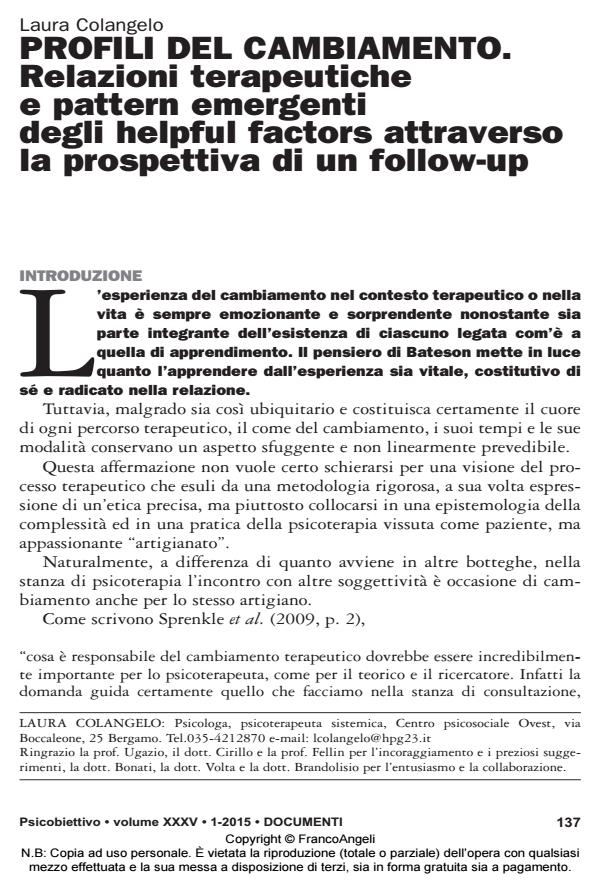Profiles of change. therapeutic relationship and emerging pattern of helpful factors through the perspective of follow-up
Journal title PSICOBIETTIVO
Author/s Laura Colangelo
Publishing Year 2015 Issue 2015/1
Language Italian Pages 19 P. 137-155 File size 120 KB
DOI 10.3280/PSOB2015-001010
DOI is like a bar code for intellectual property: to have more infomation
click here
Below, you can see the article first page
If you want to buy this article in PDF format, you can do it, following the instructions to buy download credits

FrancoAngeli is member of Publishers International Linking Association, Inc (PILA), a not-for-profit association which run the CrossRef service enabling links to and from online scholarly content.
The author presents a qualitative follow-up research to compare patients’ and therapist’s experience of change in eight systemic-oriented individual, marital and family psychotherapies completed with the same therapist in an Italian public mental health service. Methodology: 16 follow-up semi-structured interviews (8 with patients and 8 with their therapist) were conducted by two trained clinicians after two years from the end of each treatment. All interviews were transcribed and analysed using the Interpretative Phenomenological Analysis to compare the outcomes and the helpful factors identified by patients and therapist. Most master themes identified in the two main areas, outcomes and helpful factors, which are shared by both patients and therapist. Client identified important outcomes in psychotherapy that resulted to be the same 8 pointed out by their therapist. Another significant finding concerns the therapist-patient matching: each dyad highlighted some factors rather than others. These findings support the hypothesis that change and helpfull factors are experienced according to a specific pattern connected which every different therapeutic relationship.
Keywords: Follow-Up; Change; Helpful Factors; Patients and Therapist’s Perspective; Qualitative Research; Interpretative Phenomenological Analysis.
Laura Colangelo, Profili del cambiamento. Relazioni terapeutiche e pattern emergenti degli helpful factors attraverso la prospettiva di un follow-up in "PSICOBIETTIVO" 1/2015, pp 137-155, DOI: 10.3280/PSOB2015-001010